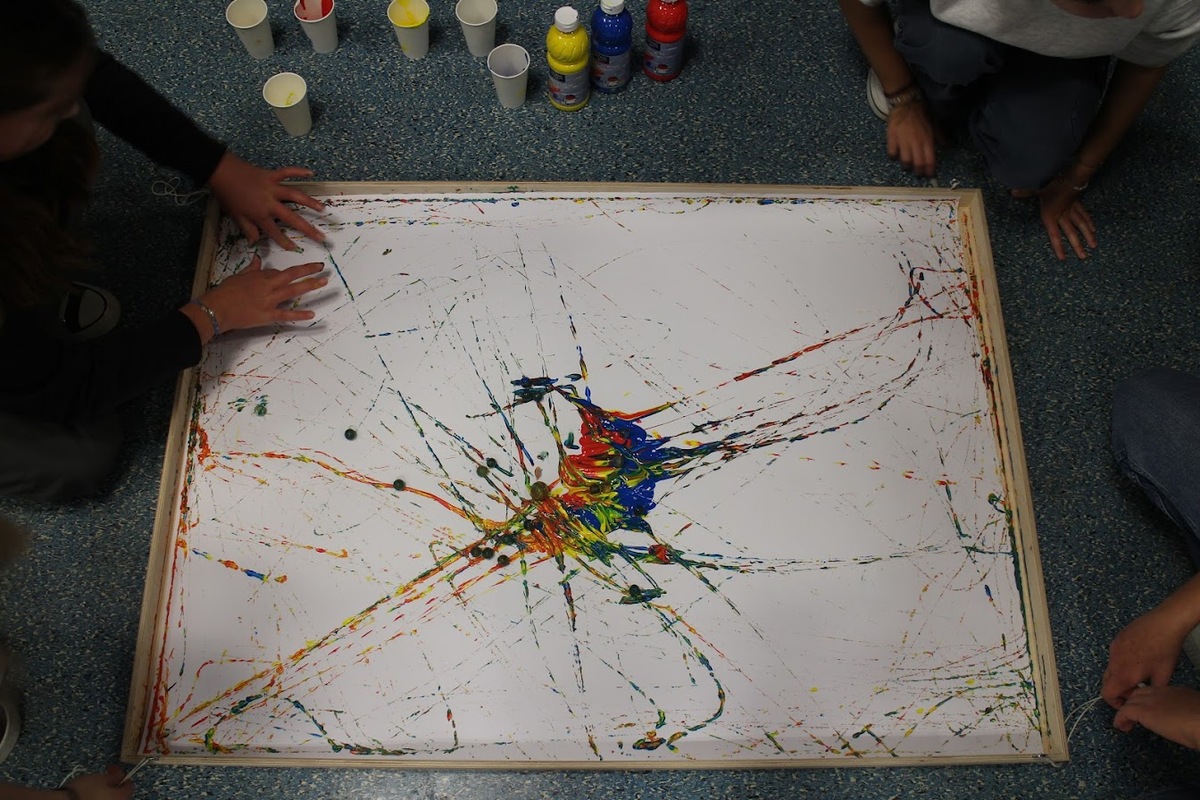An innovative educational concept at KIT opens doors to science and art for young people
With the "Science&Art@School in Karlsruhe" program, the Karlsruhe Institute of Technology (KIT) aims to create a pioneering approach to getting young people interested in complex topics through an interdisciplinary combination of art and science. This innovative concept is based on the assumption that an early engagement with art and a creative approach to scientific topics have a positive impact on the educational path and the choice of studies, especially in the STEM field.
The initiator, the Karlsruhe Center for Elementary Particle and Astroparticle Physics (KCETA) at KIT, launched the program under the direction of Katrin Link, initially as a test offer for one school in Karlsruhe, with more to follow. The aim is not only to get young people excited about science through artistic, creative reflection and inspiration, but also to win over other partners from the fields of culture and education as collaborators.
Last fall, the first school from Karlsruhe was invited by the head of the ETP (Elementary Particle Physics) Institute, Prof. Markus Klute, to immerse themselves in the fascinating concepts of particle and astrophysics. First there were exciting hands-on workshops led by young KIT students Michelle Gensmann and Christian Winter. Afterwards, the school class visited KIT's state-of-the-art cutting-edge technology infrastructure and were thus familiarized with the everyday life of basic research and technology. They saw the clean room, where highly sensitive detector elements are assembled for the experiments at CERN, and a state-of-the-art mechanical workshop where a computer-controlled robot cuts precise parts with a water jet or the KATRIN experiment located at the KIT North Campus,
. The event not only included a purely fact-based approach to the topics, but also a philosophical reflection and discussion in which the students were able to share their personal experiences and expectations. They were then invited to express their thoughts and feelings through artistic experiments. Prepared in advance by their dedicated physics teacher Hartmut Aichert, the students had great fun and were fully engaged as they carried out their art experiments under the guidance of Michael Hoch, physicist and art educator at CERN. The resulting artworks are already impressive testimonies to this inspiring experience.
The aim of the kick-off workshop at KIT is to integrate the understanding and enthusiasm gained into everyday school life. The focus here is on continuing and deepening the artistic exploration in work or art lessons. KCETA is looking forward to presenting the students' final works to the public in an appealing setting at KIT. This unique combination of basic research and creative expression shows that science can not only be fascinating, but also inspiring.


